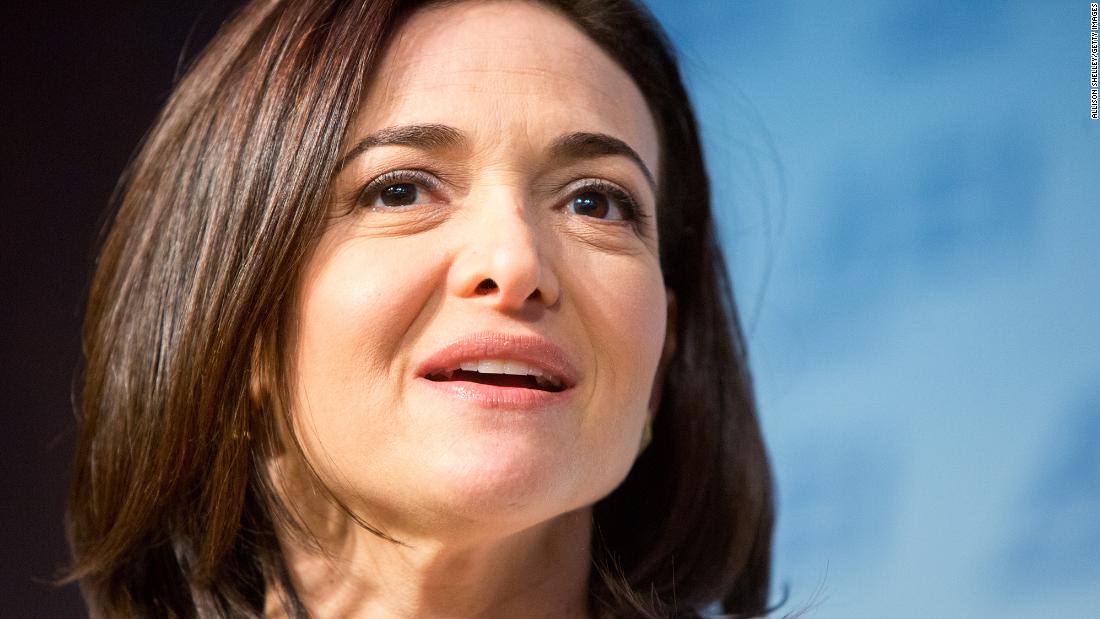
But as Facebook’s reputation shifted after the 2016 presidential election, so did Sandberg’s. Facebook faced criticism for enabling the spread of misinformation and conspiracy theories that posed a threat to democratic institutions. It was hit by the massive Cambridge Analytica privacy scandal in 2018. And more recently, the company, now called Meta, came under fire from whistleblowers and lawmakers for allegedly putting profits over people, and ignoring its platforms’ apparent harms for young users. During that time, Sandberg and Zuckerberg were each called to testify before Congress and issued a number of public apologies.
Now, Sandberg is set to step down as COO this fall after a dizzying 14-year-run, with plans to focus on philanthropic efforts while remaining on the company’s board. But as she looks to her next act, she leaves behind a complicated legacy that partly mirrors the legacy of the organization itself.
Other industry watchers, however, stressed the negative impacts from Facebook that emerged during her watch and pointed the finger at her for not doing more to prevent them.
“Her decisions at Meta made social media platforms less safe for women, people of color, and even threatened the American electoral system,” Shaunna Thomas, the co-founder of UltraViolet, an advocacy group for gender equity, said in a statement. “Sandberg had the power to take action for fourteen years, yet consistently chose not to.”
Shoshana Zuboff, a professor emerita at Harvard Business School and author of several books on how technology is impacting society, told CNN that she believes Sandberg’s work in finding ways to monetize users’ personal data makes her “responsible for the wholesale destruction of privacy.”
Meta, Facebook’s parent company, declined to comment for this story beyond the public posts from Sandberg and Zuckerberg. In her post, Sandberg noted how much social media issues had changed from the time she joined the company.
“The debate around social media has changed beyond recognition since those early days. To say it hasn’t always been easy is an understatement,” she said. “But it should be hard. The products we make have a huge impact, so we have the responsibility to build them in a way that protects privacy and keeps people safe.”
“I and the dedicated people of Meta have felt our responsibilities deeply,” she added. “I know that the extraordinary team at Meta will continue to work tirelessly to rise to these challenges and keep making our company and our community better.”
The adult in the room
Sandberg joined Facebook after holding senior roles at Google and the Treasury Department. She was widely viewed as being the seasoned hand at a company run by a twenty-something founder and exploding in growth.
“She came in in the era where people were like, ‘These founders need adults in some of these companies,’ and she got a ton of attention for it,” former Facebook employee Katie Harbath, who now is CEO of the consulting firm Anchor Change, told CNN Business. Harbath added that, “in some ways, Mark and Sheryl were co-CEOs.”
Sandberg presided over the company as it grew from roughly $150 million in annual revenue to $117.9 billion last year. She also oversaw public policy, legal and human resources as the company’s headcount grew from 500 employees to nearly 78,000. In her role, she became an ambassador for the company and sometimes met with world leaders in place of Zuckerberg.
Under Sandberg’s leadership, Meta employees conducted anti-bias trainings and she is credited for helping institute some of the coveted benefits employees still enjoy — such as support for employees who want to freeze eggs and expanded bereavement leave, following the sudden death of her husband. (Sandberg spoke candidly in public about helping people talk about grief, even at work.) She also is seen as a major force behind Facebook’s decision to create a Civil Rights team.
Sandberg’s role publicly representing the company also appeared to shift in later years. To help manage the public policy part of Facebook’s business, the company hired Nick Clegg as head of global affairs in 2018. While the former UK deputy prime minister reported to Sandberg, it also meant relieving Sandberg of a portion of her portfolio and reducing her profile — which, according to a 2021 report by the New York Times, partly highlighted a rift between Sandberg and Zuckerberg that had emerged during the Trump administration and only widened over time. (Facebook disputed the Times’ characterization of their relationship.)
At the same time, Sandberg arguably remained constrained in speaking out publicly on certain issues due to her leadership role at the company. Harbath said Sandberg always had “causes she wanted to work on, but being COO at Meta, there’s always a limit to how outspoken you could be.”
That could change once she leaves.
Sandberg’s next act
In her announcement this week, Sandberg said she is “not entirely sure what the future will bring.” She has plans to get married this summer and wrote that she hopes to focus “more on my foundation and philanthropic work, which is more important to me than ever given how critical this moment is for women.”
Rachel Thomas, co-founder and CEO of Sandberg’s women’s advocacy foundation LeanIn.org, told CNN that she is “thrilled” Sandberg will now be able to assist more in the work of the foundation.
“Sheryl brought new energy to the conversation about women’s leadership, and she founded LeanIn.Org to do her part to advance women in the workplace,” Thomas said in an emailed statement. “With more of Sheryl’s insights and energy, we’ll be able to do more, more quickly, and that’s exciting.”
Renewing her focus on women’s advocacy and empowerment work, while not being the public face of a controversial tech giant, could potentially help bolster some of the positive portions of her legacy. But it remains to be seen whether Sandberg will find her way to the CEO role at another large tech or media company as she once seemed destined to do.
CNN’s Brian Fung contributed to this report.

